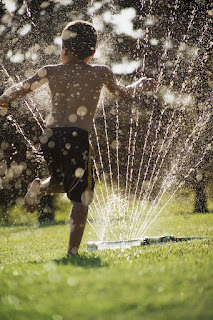April 4th, 2017 by IISG
The Association of Natural Resource Extension Professionals (ANREP) has just given Kara Salazar the early career leadership award. Salazar joined Illinois-Indiana Sea Grant as a sustainable communities extension specialist in 2012. She serves as a link between Indiana and Illinois communities and scientists conducting research on sustainability.
ANREP strives to provide a variety of approaches to help educate landowners, managers, decision makers, and youth. Its annual awards program fosters high standards within the membership, recognizes significant achievement, and expands the use of high quality, innovative materials and programs by honoring the outstanding members and partners who developed them.
Illinois-Indiana Sea Grant is a part of University of Illinois Extension and Purdue University Extension.
June 6th, 2016 by IISG
IISG is excited to welcome four student interns this summer to help our specialists with everything from needs assessments, to outreach, to strategy facilitating, to economic valuations—and more. These four will spend 12 weeks working closely with a Sea Grant specialist on the issues affecting the Great Lakes.
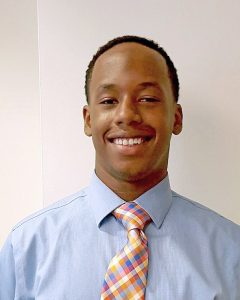 Jordan Lillybridge
Jordan Lillybridge
Green Infrastructure Workforce Intern
Margaret Schneemann
Located at Chicago Metropolitan Agency for Planning
Jordan is a senior at Carthage College in Kenosha, Wisconsin majoring in geospacial science with a minor in geographic information systems.
He will be conducting a needs assessment and market analysis to ensure that training and workforce development efforts are in line with the Calumet region’s occupational and employment needs, leveraging the relationship gap between stakeholders and the community, and making sure all aspects (skill gaps, design standards, municipal regulations and the regional environment policies) are being looked at when achieving a Green Infrastructure program
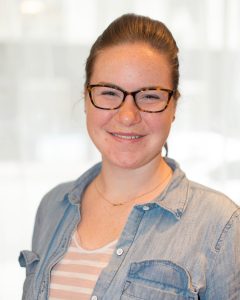
Abigail Petersen
Community Sustainability Intern
Kara Salazar
Located at Purdue University
Abigail graduated in May from the University of Illinois in natural resources and environmental sciences. She will be pursuing a Master’s degree in August 2016 in agriculture education at the University of Illinois.
During her summer internship, Abigail will collaboratively develop new extension education and training materials (case studies, fact sheets, excerpts of guide books) related to public spaces, rain gardens, and watershed management topics. She will also be help campus specialists deliver extension and training programs to communities across Indiana.
Abigail has hit the ground running in the two weeks since her internship began. She has attended the inaugural train the trainer program for the Enhancing the Value of Public Spaces program, supported the first meeting and launch of the advisory board and program development effort for the new Natural Resources Leadership Program, attended strategic planning meetings for IISG in Chicago, and helped to host a community meeting to start the Enhancing the Value of Public Spaces program in Columbus, Indiana.
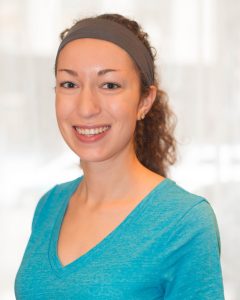
Ashley Rice
Science Writer and Nutrient Strategy Facilitator Intern
Anjanette Riley, Eliana Brown, and Lisa Merrifield
Located at University of Illinois
Ashley comes to us from the agricultural communications program at Illinois State University, where she is about to start her senior year.
This summer, Ashley will wear two hats: a science writer and nutrient strategy facilitator. For her part in the communications team, Ashley oversees the Illinois Water blog, writing news and feature articles on IWRC research projects and important water issues facing the state.
She will also work closely with IWRC and IISG’s Eliana Brown to help facilitate Illinois Nutrient Loss Reduction Strategy implementation and support Eliana’s other stormwater and water quality outreach efforts.
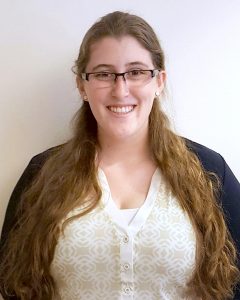 Lauren Schnoebelen
Lauren Schnoebelen
Water Pricing Intern
Margaret Schneemann
Located at Chicago Metropolitan Agency for Planning
Lauren is a recent graduate from Northern Michigan University with a major in environmental science, a concentration in natural resources and a minor in sustainability.
She will be working on the Ecosystem Services Project helping with organizing tables of articles and writing the literature reviews on their economic valuations.
Lauren will also be on the water rates database where she will be working with water rates and pricing ordinances.
Illinois-Indiana Sea Grant is a part of University of Illinois Extension.
June 5th, 2016 by IISG
Daniel Walker is IISG’s new community planning extension specialist located in the Department of Forestry and Natural Resources at Purdue University. He will collaborate with Purdue Extension staffers, community leaders, stakeholders, and interest group representatives in the Great Lakes region through programs that combine research-based tools with community planning to help determine and achieve the public interest.
Daniel is a member of the American Institute of Certified Planners, and joins IISG with five years of municipal planning and economic development experience with the City of Lafayette, Indiana.
Daniel earned a Master’s degree of urban and regional planning from Ball State University and a Bachelor’s degree in history from Monmouth College. He is a licensed secondary educator in Illinois.
Illinois-Indiana Sea Grant is a part of University of Illinois Extension.
December 2nd, 2015 by iisg_superadmin
Sustainable Communities Extension Specialist Kara Salazar received word earlier this week that Governor Mike Pence chose her as one of four council members to serve on the Indiana Land Resources Council.
The council serves as a resource for local communities to provide information and expertise on land use and zoning issues.
Salazar’s affiliation with Purdue University Extension has helped communities throughout Indiana identify issues that impact their sustainability and land use policies. She will serve a four-year term through November 15, 2019.
May 27th, 2015 by iisg_superadmin
When municipalities consider how to set water rates, they often look to neighboring communities as reference points. This can involve a lot of digging for data, which takes lots of time, and in the end, may be comparing apples with oranges.
In the Chicago area, communities can now benchmark their water rates much more easily and can set comparisons to other communities that make sense. Northeast Illinois is now one of eleven locations that has a free water rates dashboard providing utilities with the ability to compare their residential water and wastewater rates against multiple characteristics, including utility finances, system size, customer demographics, and geography.
The Northeast Illinois Water and Wastewater Rates Dashboard was created by the University of North Carolina Environmental Science Center with support from the EPA Smart Management for Small Water Systems—a nationwide project of the Environmental Finance Center Network (EFCN).
The water rates data that brings this tool to life was compiled by Margaret Schneemann, IISG water resource economist and Jennifer Egert, IISG summer intern, in a survey of 224 municipalities in the greater Chicago region’s seven counties—Cook, DuPage, Kane, Kendall, Lake, McHenry, and Will.
Managing water supplies sustainably starts with getting the price right.
One of the larger goals of the water rate dashboard is for municipal utilities to make informed choices when setting water rates so that critical rate-setting factors get their proper due. “Rate comparisons taken out of context can lead to peer pressure to keep rates low while neglecting other objectives such as cost recovery and conservation,” explained Schneemann.
Complementing the dashboard is the
Full-Cost Water Pricing Guidebook,
which offers local decision makers basic “how tos” on implementing rates that encourage efficient water use and support investment in aging infrastructure.
The water rate dashboards include dials showing comparative measures of average monthly bills, affordability, how well rates cover operation and maintenance costs, and the level of conservation that is encouraged.
“The dashboard promotes resource sustainability while also supporting financial security for the utility and economic development for the community,” added David Tucker, EFCN project director.
For utilities that make the decision to raise water rates to more sustainable levels, the dashboard provides data to back up these proposals. In designing this resource, it was made user-friendly for a variety of possible audiences, including city officials, reporters, and customers.
December 17th, 2014 by iisg_superadmin
A closer look at web tools and sites that boost research and empower Great Lakes communities to secure a healthy environment and economy.
The Sustainable Communities program, a collaboration between IISG and Purdue University Extension, has been helping Indiana decision makers and residents improve the long-term health of their communities for years. And learning about available workshops and resources is now easier than ever with their new program website.

Visitors will find information on key Purdue University Extension programs and resources to support community planning. Enhancing the Value of Public Spaces, for example, provides a framework for collecting data on community assets and using that data to preserve and improve parks, town centers, and other public spaces. The program will also help community leaders charged with managing public spaces and implementing new projects build communities that are more resilient to economic and environmental changes. The process starts with a one-day workshop that helps participants identify best practices for improving public spaces. Collaborative activities emphasize forming partnerships to achieve community sustainability goals, and follow-up working group meetings facilitated by Purdue Extension provide the resources and technical support needed to plan and implement projects tailored to individual communities. Workshops can be scheduled now. The complete curriculum will be available for download in early 2015.
For Master Gardeners, stormwater educators, and others involved in community education programs, a visit to the website is a quick way to learn about a train-the-trainer program designed to reduce stormwater runoff and the pollution it carries. Rainscaping Education is an advanced training opportunity that includes classroom instruction, online learning opportunities, and field trips to community examples of rainscaping projects. Participants also team up with community partners to design and create a demonstration rain garden. At the end of the four training modules, participants are prepared to support rainscaping projects and associated education programs in their communities. Workshops will begin this spring.
For more information on Purdue’s Sustainable Communities Extension Program, contact Kara Salazar.
August 29th, 2014 by iisg_superadmin
 Our summer internship program has wrapped up for another year. This summer, seven students and recent graduates worked with our specialists on broad range of issues, including AIS prevention, sediment remediation, and water supply planning. Brittany Sievers spent her internship working with Kara Salazar, IISG’s sustainable communities specialist. She had this to say about her summer experiences:
Our summer internship program has wrapped up for another year. This summer, seven students and recent graduates worked with our specialists on broad range of issues, including AIS prevention, sediment remediation, and water supply planning. Brittany Sievers spent her internship working with Kara Salazar, IISG’s sustainable communities specialist. She had this to say about her summer experiences:
“Since my internship covered many programs, I worked on different projects every day, which kept me busy and engaged. Some of my favorite projects were those that gave me an opportunity to develop my professional writing skills and become a published author. I wrote several curriculum pieces for the Enhancing Public Spaces program and pieces that will appear on the program’s website once it is complete. I expanded the Green Meetings and Events Planning Guide that a previous intern created by adding ‘cheat sheets’ for large events and professional meetings that summarized the information provided within the publication. Finally, I wrote scripts for two rainscaping training videos—plant selection and rain garden design.

I was also able to get out of the office and work directly with the public and other key stakeholders on several occasions. I was at the Wabash Riverfest with a trivia game geared towards children that I developed. I also assisted Kara during pilot testing of the Tipping Points and Indicators tool in Hobart, IN and with a presentation of the program during the 2014 Institute for Sustainable Development in Nashville, IN.
Since I plan to work in an outreach position in the future, this internship was perfect for me. I had not had work experience in outreach before, but I have enjoyed being active in several outreach clubs at Purdue to facilitate positive change on the Purdue University campus and the surrounding community. I know my experiences this summer will help my chances of landing a job and excelling in that position in the future.”
With her undergraduate work in natural resources and environmental sciences complete, Brittany is turning her sights to graduate school. In fact, she began work on a Master’s in marine conservation and policy earlier this week at Stony Brook University in New York.
October 10th, 2013 by Irene Miles
John Saltanovitz, currently a senior at Purdue earning a bachelor’s degree in Natural Resources and Environmental Science, worked this past summer as a sustainable communities outreach intern with IISG’s Kara Salazar. He wrote in to detail his experience getting hands-on in the environmental science field.
 “When I started college, I was not aiming towards a career in environmental science. But as my classes progressed and I learned more about the topics, I realized how important the field was. There are so many issues that, if left ignored, could cause problems for future generations. Working to solve these problems is why I chose environmental science as my major. I learned about the internship with IISG from an email my department sent out, and it seemed like an amazing opportunity to get hands-on with the field I wanted to be involved in.
“When I started college, I was not aiming towards a career in environmental science. But as my classes progressed and I learned more about the topics, I realized how important the field was. There are so many issues that, if left ignored, could cause problems for future generations. Working to solve these problems is why I chose environmental science as my major. I learned about the internship with IISG from an email my department sent out, and it seemed like an amazing opportunity to get hands-on with the field I wanted to be involved in.
My specific focus was with community outreach. I worked with Kara on creating publications that could help communities be more aware of environmental problems and how to fix them. My main project was creating a zero waste guide that could be used for planning local events in the future. The guide helps to provide ideas and statistics behind zero waste events, how they work, and how to plan for them. My hope is that this document will encourage people in the community to work towards being more environmentally friendly.
My work this summer has showed me how much effort those in the outreach field put forth to help make a difference. I’ve always grown up around the Great Lakes, but this internship really opened my eyes to all of the different projects people are doing to assist and protect the Great Lakes region. Before this internship, the idea of research/outreach with the Great Lakes hadn’t crossed my mind, but this summer’s experiences have greatly increased my interest in and passion for the subject. I’ve learned that no problem is too small or unimportant when it comes to creating a better place to live and a healthier environment.
I plan on continuing my studies in environmental science and working towards a degree in environmental engineering. My internship showed me how many possibilities are out there and what can be accomplished with hard work. I’ve met so many great people through IISG who all have a passion for what they do. It was a blessing to be involved in an organization like IISG. The only downside is that the summer felt like it went by so fast. I wish that I could have had more time to continue working and networking in the field.”
John is one of four interns who worked with IISG this summer. You can look forward to additional posts soon.
July 31st, 2013 by Irene Miles
 As summer begins to wind down, so do IISG’s summer internships. For John Saltanovitz, though, working as an intern at Purdue University’s Sustainable Communities Extension Program is just the beginning. With a summer full of hands-on outreach experience under his belt, John plans to pursue a career as an environmental engineer so he can continue to help communities and organizations better use and conserve natural resources.
As summer begins to wind down, so do IISG’s summer internships. For John Saltanovitz, though, working as an intern at Purdue University’s Sustainable Communities Extension Program is just the beginning. With a summer full of hands-on outreach experience under his belt, John plans to pursue a career as an environmental engineer so he can continue to help communities and organizations better use and conserve natural resources.
Many of the issues surrounding community sustainability—such as land use planning, pollution prevention, and water conservation—were not new to John when he started working with IISG’s Kara Salazar earlier this summer. As a senior working towards a degree in Natural Resources and Environmental Science and a life-long resident of Northwest Indiana, he was even familiar with some outreach efforts already underway in the Lake Michigan region. His summer internship gave him a chance to apply what he has learned over the years and work firsthand with communities.
“We hear a lot about sustainability in our classes and talk about what needs to be done” said John. “This internship gave me a chance to do something instead of just talk it. It’s really exciting to be working on things that you always said you wanted to do.”
Much of his summer efforts went towards developing a guide for conducting “green” meetings and events. At the heart of the guide is a checklist of best practices that advise anyone planning or managing events, helping them make sustainable decisions. Some of these best practices include relying on public transportation, composting leftover food, and reducing waste. Throughout his internship, John worked directly with Purdue Extension educators and specialists, the guide’s primary audience, to determine what information they needed and develop the checklist. The Best Practices Guide for Green Meetings and Events will soon be sent to Purdue Agriculture Communications for peer review and editing before publishing the finalized version through Extension.
In addition to his work on the guide, John helped develop a new Purdue Master Gardener advanced training program for rain gardeners, provided content on education strategies for the Tipping Points and Indicators Project, contributed information to the new Sustainable Communities website, and led outreach activities at the IISG booth during the Wabash Riverfest in West Lafayette. He was also involved in planning for IAGLR, and joined three other IISG interns as a volunteer during the week-long conference.
“Through his enthusiasm, detailed work, and dedication, John has truly helped to advance new program offerings and education materials that will support sustainability programs in communities state-wide,” said Kara. “I look forward to continuing to work with John as we complete the peer review and editing process for the Best Practices Guide for Green Meetings and Events publication.”

 Jordan Lillybridge
Jordan Lillybridge

 Lauren Schnoebelen
Lauren Schnoebelen
